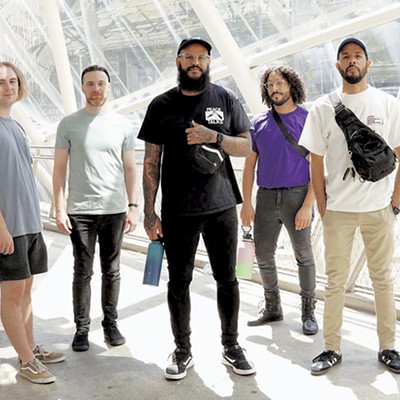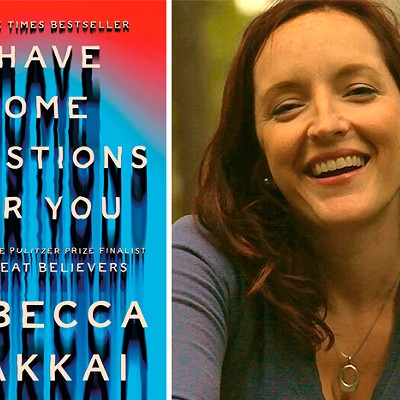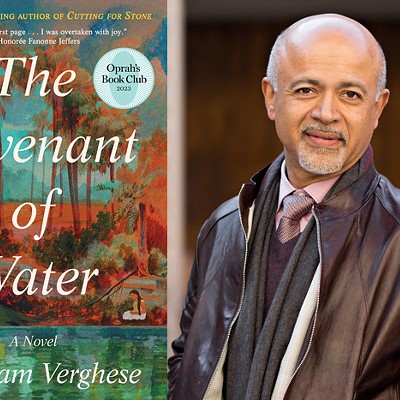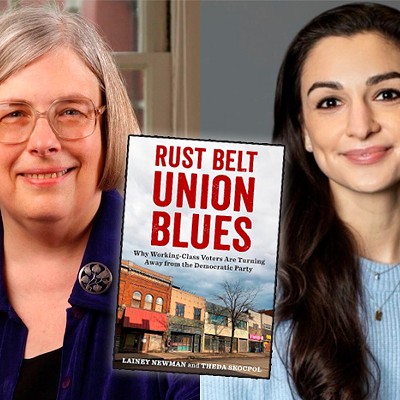
O’Connell not only dispensed much-needed medical care, he also became a confidante, and sometimes friend, to many of the people he treated. Over nearly four decades, he spent a tremendous amount of time — sometimes 100 hours per week — dealing with so-called rough sleepers, a term used for people who, because of a lack of resources, are forced to find shelter outdoors.
“He’s willing to spend the time and the effort to get to know people,” says Kidder, author of Rough Sleepers: Dr. Jim O’Connell’s Urgent Mission to Bring Healing to Homeless People (Random House), during an interview with Pittsburgh City Paper. “It seems to come naturally to Jim. He’s an extraordinarily gregarious person and one of the best listeners I’ve ever known.”
Kidder and O’Connell will appear together on Mon., March 25 as guests of the Pittsburgh Arts & Lectures Ten Evenings series.
During his research, Kidder, whose books also include The Soul of a New Machine and House, learned that many of O’Connell’s patients suffered trauma during their lives. They had been abused and neglected as children or were victims of violence. While some were dealing with substance abuse issues, no one chose to lead a life rife with desperation.
“There is something about the condition of homelessness, such as it can be, that can strip you of all of the trappings of your humanity,” Kidder says. “Part it's just a lack of resources. How do you stay looking clean and smelling all right if you live in a city like Boston that has almost no public bathrooms? I think for that reason seeing the homeless people who are visible to us … It's easy for the rest of us to imagine that they're primitive or even alien. But when you actually spend time with them, you simply cannot sustain that, that that's really a rather stupid notion.”
O’Connell started studying medicine when he was 30. He had majored in philosophy at Notre Dame, where he was class salutatorian. After studying philosophy at the University of Cambridge University in England and spending a couple of years teaching high school and coaching basketball in New England, O’Connell became a bartender in Newport, R.I. He considered studying law before pursuing a career in medicine at Harvard.
Kidder believes O’Connell’s experiences before entering medical school allowed him to be amenable to working with rough sleepers.
“I think it was just maturity,” Kidder says. “And also, having tried out so many other things and learning what he himself wanted. He told me that he didn’t think he had a mind for philosophy, but he had been at Cambridge University and studied philosophy."
Kidder adds that German-American philosopher Hannah Arendt, considered one of the most influential political theorists of the 20th century, chose O’Connell to be a teaching assistant based on his writings.
“So clearly, he was good at it," Kidder says. "But what it taught him was that he wanted action in his life. He didn’t want just thought.”
When O’Connell started working with rough sleepers, there was a period of adjustment. He was aided by Barbara McInnis, a nurse at the Pine Steet Inn clinic in Boston where O’Connell began to work. McInnis, a lay Franciscan, first instructed O’Connell to wash the feet of patients to help him understand the complexities of dealing with the homeless population.
“She was tough-minded but very kind,” Kidder says, noting that McInnis often fed the mice in the alley behind the clinic. “She was upset at the way the medical establishment treated homeless people, like a lot of the nurses at the Pine Street Inn … She wanted doctors working with homeless people. And I think she took it upon herself to train Jim."
Kidder says that McInnis regarded O’Connell as "trainable."
"I can imagine so many other young doctors, hotshots, rejecting that," he explains, pointing out that O’Connell had been a resident at Mass General, where he oversaw the ICU. "He was a prized student, and here he was being told he had to wash patients’ feet to learn a little humility. That’s a fairly rare person who would accede to that.”
Pittsburgh Arts & Lectures presents Tracy Kidder with Dr. Jim O’Connell. 7:30 p.m. Mon., March 25. Carnegie Music Hall. 4400 Forbes Ave., Oakland. $30-43, $18 for online access. pittsburghlectures.org


















